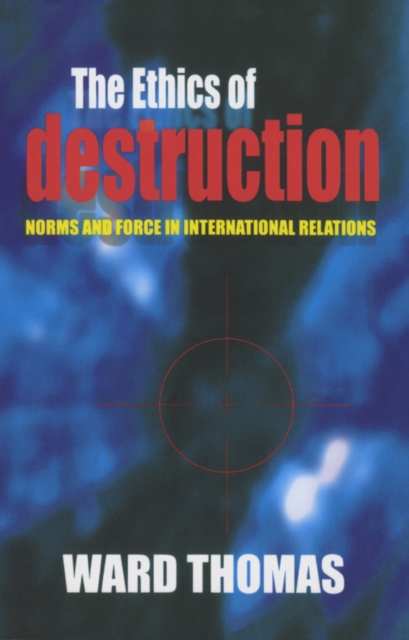The Ethics of Destruction

The Ethics of Destruction
Many assume that in international politics, and especially in war, "anything goes." Sherman famously declared war "is all hell." The implication behind the maxim is that in war there is no order, only chaos; no mercy, only cruelty; no restraint, only suffering.Ward Thomas finds that this "anything goes" view is demonstrably wrong. It neither reflects how most people talk about the use of force in international relations nor describes the way national leaders actually use military force. Events such as those in Europe during World War II, in the Persian Gulf War, and in Kosovo cannot be understood, he argues, until we realize that state behavior, even during wartime, is shaped by common understandings about what is ethically acceptable and unacceptable.Thomas makes extensive use of two cases--the assassination of foreign leaders and the aerial bombardment of civilians--to trace the relative influence of norms and interests. His insistence on interconnections between ethical principle and material power leads to a revised understanding of the role of normative factors in foreign policy and the ways in which power and interest shape the international system.
PRP: 210.49 Lei
Acesta este Prețul Recomandat de Producător. Prețul de vânzare al produsului este afișat mai jos.
168.39Lei
168.39Lei
210.49 LeiLivrare in 2-4 saptamani
Descrierea produsului
Many assume that in international politics, and especially in war, "anything goes." Sherman famously declared war "is all hell." The implication behind the maxim is that in war there is no order, only chaos; no mercy, only cruelty; no restraint, only suffering.Ward Thomas finds that this "anything goes" view is demonstrably wrong. It neither reflects how most people talk about the use of force in international relations nor describes the way national leaders actually use military force. Events such as those in Europe during World War II, in the Persian Gulf War, and in Kosovo cannot be understood, he argues, until we realize that state behavior, even during wartime, is shaped by common understandings about what is ethically acceptable and unacceptable.Thomas makes extensive use of two cases--the assassination of foreign leaders and the aerial bombardment of civilians--to trace the relative influence of norms and interests. His insistence on interconnections between ethical principle and material power leads to a revised understanding of the role of normative factors in foreign policy and the ways in which power and interest shape the international system.
Detaliile produsului









